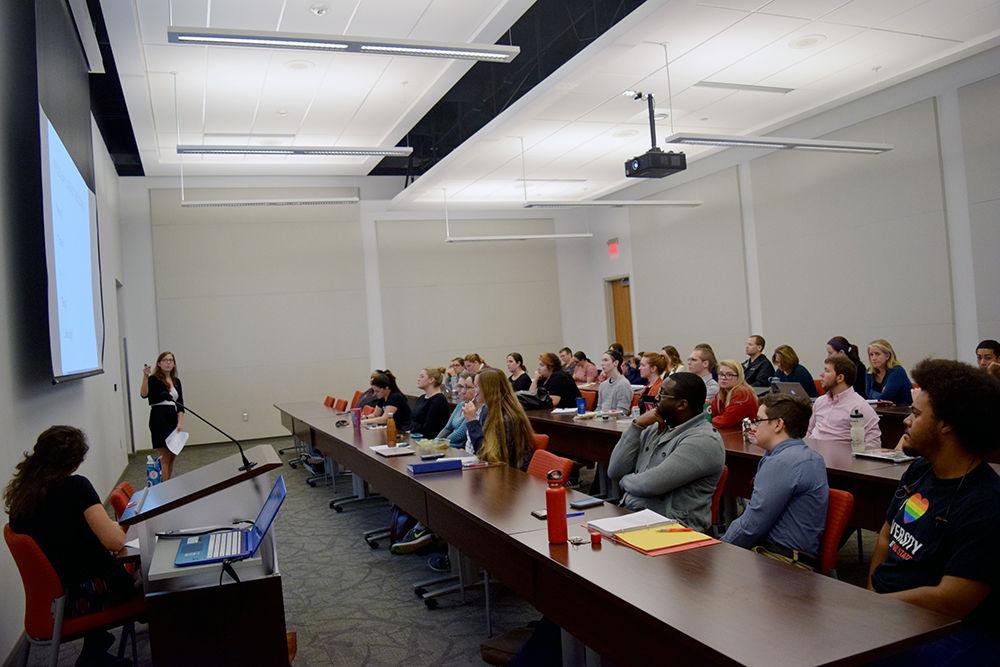On Thursday, the GLBT Center and the Language Diversity Ambassadors held a workshop discussing the impact of gender in languages along with the problems and solutions related.
The workshop was intended to examine the ways in which language influences the construction of gender and the ways it impacts the lived experiences of folks, according to Preston Keith, the assistant director of the GLBT Center.
Kelly Noel Waldorf and Caroline Myrick, two graduate students in the sociolinguistics program, hosted the event. The Ungendering Language talk came from his own experiences with Myrick and attempts to be more inclusive.
Myrick started the discussion by talking about languages that use gender. Languages that assign gender to nouns arbitrarily have what is called a formal gender, which includes many popular languages like Arabic, German, Greek and Romance languages.
“English actually was a gendered language at one point,” Myrick said.
English used to be a three-gender language but the only remnants of that in modern English are the personal pronouns he, she, and it, according to Myrick.
Waldorf and Myrick listed seven issues with language and gender, binary pronouns, the generic he, the generic man, the use of woman as an affix, sexist discourse, heteronormative and heterosexist language and homophobic language.
In recent years there has been a push for the singular they. This has been met with pushback from academics, but several linguistic authorities like The Associated Press have started to use it.
“We love the singular they,” Myrick said.
In the workshop Myrick talked about what to do if a mistake is made about one’s pronouns.
“Just straight up say ‘I think so-and-so uses these pronouns’,” Myrick said.
Waldorf and Myrick spoke about the generic he and generic man. According to Myrick, generic he and generic man are “just another indicator” of the dominance of men in society. Both cited studies showing that job titles such as congressman or policeman are associated as men’s work by children.
Using woman as an affix, such as hostess instead of host, is related to generic he and generic man, according to Waldorf and Myrick. Waldorf explained that this makes women become an other, and recommended to use the generic instead of specifying the gender.
Sexist discourse and homophobic language, although among the last problems listed, were the most important. Waldorf showed the You Don’t Say campaign from Duke University, which included words and phrases like “don’t be a pussy” and “no homo.” During the workshop Myrick showed a website that showed the number of tweets that contained certain homophobic phrases. As the count climbed, Myrick talked about education and being open to correction.
Keith, who organized the event, ended the talk with a small assessment.
“The Lunch and Learn series is an opportunity for faculty, staff, and student leaders to engage in dialogue and attain tangible skills,” Keith said.
The next Lunch and Learn workshop will be on November 8 at noon in Talley 3285. The focus of that event will be “Supporting Student Activists
“This isn’t about being politically correct, it’s about being correct,” Myrick said.








